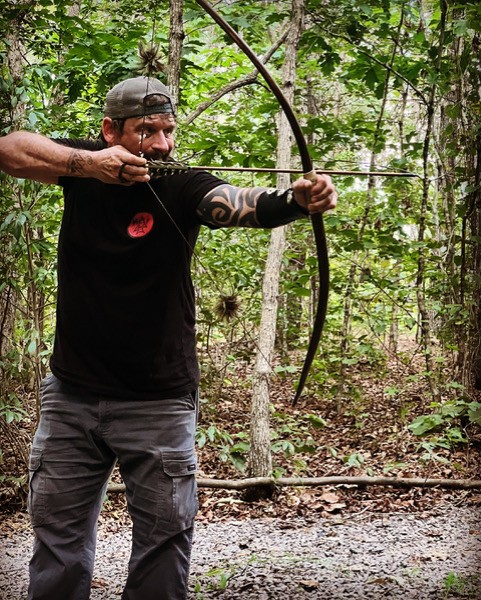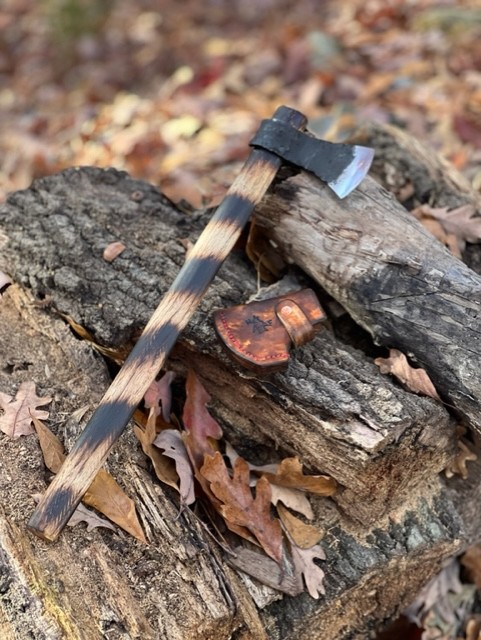Jason Smith and I have a great friendship. There is mutual respect, understanding of each other's background, and a common goal to improve people's experience in the great outdoors. I've podcasted Jason for the Fieldcraft Survival Podcast, and we use his property to host our ever-popular courses in North Carolina. Recently, I wanted to pick his brain on a few topics that come up regularly in Q&A with students, podcast fans, and over the internet. Jason has a unique perspective as a SERE instructor here in NC and a career in the military. What follows are a handful of questions with his responses.

KE: Winter officially ended on the 18th, and Spring is here. As the seasons change, how do your survival priorities change?
JS: As the seasons change, so should your mindset and understanding of your environment. The trees that were lifeless during the colder months are now springing to life, giving you an excellent opportunity for tree identification and possible uses. So, shifting focus to a point where you are hyper-aware of the changes in your environment so you can appreciate how everything changes depending on the season.
KE: Jason, you make some really nice knives and hawks, but you are also an advocate for knowing how to accomplish survival skills when everything is taken from you, lost, broken, etc. Where did this philosophy come from?
JS: I have always been about doing without, even since childhood. However, my desire to thrive despite not having the latest and greatest gear comes from my time spent in Special Operations; that is where my survival psychology was forged. SERE is where I learned that doing more with less and accomplishing a mission or achieving the desired outcome is worth exploring.
KE: Last summer, you were a guest instructor at the Aberdeen, NC office. You taught friction fire to a sold-out course and showed students how to do it even with natural cordage. If you offered up five tips on the bow drill for someone who has never done it before, what would those tips be?
JS: 1: Practice with what works, then take away elements of that success to challenge yourself until you fail again. Failure stimulates thought and imagination, which leads to success. 2: Never practice a bow drill in a situation where you have to get it, or it will be perceived as a failure. Practice in an environment conducive to failure and allows you to step back and diagnose what's going on. 3: Use materials native to the area you train in predominantly. 4: Take classes and workshops to pick up tips and tricks. 5: Never give up; it's only physics.
KE: Besides outdoor survival, what interests do you have? I've watched you dabble with electrical work and carpentry. What do you do when you aren't Jason Smith Survival Instructor?
JS: I'm Jason Smith. I am a small business owner, husband of 30 years, and father to a teenager, if that paints a good enough picture of how busy I always am.
KE: You spent 30 days on the show Alone: The Beast, where you were given only a large mammal to use for survival. No tools were allowed other than those you could fashion. If someone wanted to learn how to upcycle/recycle/repurpose as you did but in a less extreme manner, what is a simple exercise they could do?
JS: My first recommendation would be to come to one of my courses and learn to use what you have to accomplish tasks. Essentially, just getting out and challenging your imagination to achieve a survival task in a different way with a different piece of kit than you would normally.
KE: You come from a medic background in SF. There are many potential injuries one can encounter in the great outdoors. What are some common injuries you've experienced with those you've worked with, and how can we address them?
JS: Most injuries in survival tend to be mechanical in nature due to falls or twisting of ankles, resulting in someone needing to be carried. Learning basic splinting and pain management through good splinting and immobilization, additionally building basic litters configurations. The other prevalent injuries tend to be GI or gastrointestinal from eating bad food or drinking untreated water. So, ensuring your food is cooked well and water is made potable using your desired technique will mitigate many potential problems.

KE: Tell me about "Hobo Forge Survival" and your take on doing it all with what you have. I've seen you fix up your property in interesting ways. What's the idea behind your company?
JS: The idea behind HoboForge Survival is, first and foremost, to add value to people's lives through the tools and training I provide. I want to give people the sense of accomplishment and value that comes with the skills that I teach and show them how to overlay them in their everyday lives in the environment they live. I tell people the "Forge" in HoboForge is the opportunity to forge better humans using survival and bushcraft skills as the vehicle.
KE: Fieldcraft Survival has a pillar of preparedness that includes community. We're lucky to have you here in North Carolina to help us host our courses and jump in as an instructor from time to time. Who are some of the people you enjoy learning from, training with, and having in your own community? Why?
JS: I don't consider my community local in this context, but it is more global due to the reach of social media. I continue daily to learn and share ideas with other very gifted individuals around the globe. As far as locally, you, Kevin, have been instrumental in the sharing of ideas and promotional aspects of my Survival School. Brian Edwards, Gerry Young, and Chris Phillips are several other individuals locally with whom I routinely spend time learning and sharing ideas. There are really too many to list, but outside of the state, Josh Enyart and Ryan Gill are two of my strongest advocates and have helped immensely on this journey. The only answer as to why is because these people make me better, and I only hope I'm returning the favor.
KE: What do you have lined up for 2024? I'd love to have you back as a guest instructor. What kind of courses would you be interested in teaching for us?
JS: I will have courses running at the HoboForge Survival School all year; check the website for dates and course content. I would be honored to teach another course for you guys. Pretty much anything is on the table as far as survival topics.
Follow Jason on Instagram at @hoboforge_survival and his website www.hoboforgesurvival.com
